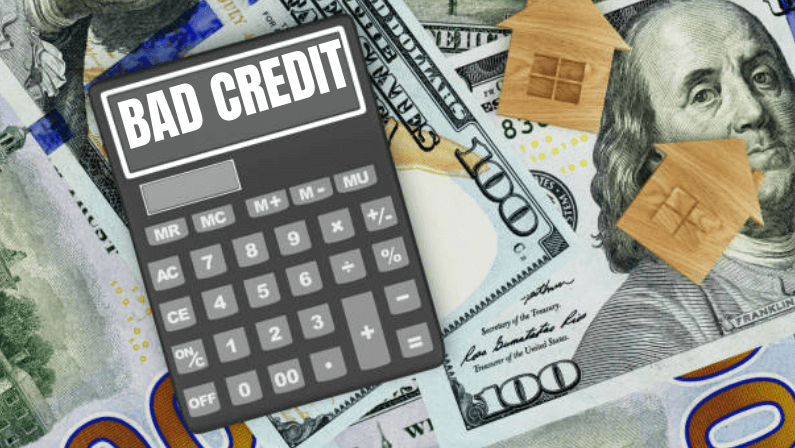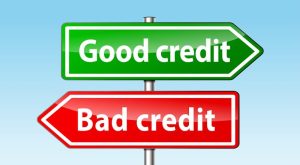
Getting a Reverse Mortgage with Bad Credit: What You Need to Know
When considering financial options in retirement, getting a reverse mortgage with bad credit may be an ideal solution for homeowners who need access to their home's equity without the concern of monthly mortgage payments. While traditional loans place heavy emphasis on credit scores, reverse mortgages function differently, making them more accessible to people with less-than-perfect credit. However, it’s essential to understand the specific requirements and how having bad credit can still impact the approval process.
Verify my mortgage eligibility (Mar 3rd, 2026)Verify my reverse mortgage eligibility!
What is a Reverse Mortgage?
A reverse mortgage allows homeowners aged 62 and older to convert part of their home equity into cash. Unlike a traditional mortgage where you make monthly payments to the lender, in a reverse mortgage, the lender makes payments to you. The loan is typically repaid when the borrower sells the home, moves out permanently, or passes away.
For many retirees, a reverse mortgage offers a way to supplement their income, cover medical expenses, or improve their quality of life during their later years. But how does credit play a role when trying to qualify for one?
Verify my mortgage eligibility (Mar 3rd, 2026)Can You Get a Reverse Mortgage with Bad Credit?
The good news is that getting a reverse mortgage with bad credit is possible. Reverse mortgages are not solely based on your credit score like traditional loans. Lenders are more concerned with the value of your home and how much equity you have built up.
That said, lenders still review your credit history to ensure you're capable of managing property-related expenses like taxes, insurance, and home maintenance. This process, known as the Financial Assessment, helps lenders determine whether you can uphold your obligations as a homeowner. Even if your credit is less than perfect, this assessment allows you to qualify by demonstrating that you can afford these ongoing costs.
Verify my reverse mortgage eligibility!
Factors that Matter More than Your Credit Score

When applying for a reverse mortgage, lenders prioritize other factors over credit scores, such as:
- Home Equity: The amount of equity in your home plays a major role in determining your eligibility. Typically, the more equity you have, the more money you may qualify for. Your home must be your primary residence, and the loan amount is based on its appraised value.
- Age: The older you are, the more you can borrow through a reverse mortgage. This is because the loan is designed to provide financial relief throughout retirement, and the amount you receive increases with age.
- Ongoing Financial Responsibilities: While your credit score is not the primary factor, lenders will look at your financial habits to ensure you can cover ongoing property-related expenses. If you've struggled with payments in the past, the lender may require you to set up a "Lifetime Expectancy Set-Aside" (LESA), which sets aside funds from the reverse mortgage to cover future property expenses like taxes and insurance.
Understanding the Financial Assessment
Even with bad credit, getting a reverse mortgage is possible because of the Financial Assessment process. During this assessment, lenders will review your income, credit history, and overall financial situation to ensure you can handle the responsibilities of homeownership. They'll check whether you've had any past delinquencies on federal debts, foreclosures, or bankruptcies.
While a low credit score doesn't automatically disqualify you, other factors like your ability to pay property taxes and homeowner's insurance can influence the lender's decision. If you've faced issues with timely payments in the past, your lender may create a plan that includes setting aside a portion of the loan to ensure these expenses are covered.
Verify my mortgage eligibility (Mar 3rd, 2026)Verify my reverse mortgage eligibility!
How Bad Credit Affects Your Reverse Mortgage Application

If your credit history includes missed payments, delinquent taxes, or previous bankruptcies, the lender may still approve your reverse mortgage application but with additional conditions. One possible condition is the Lifetime Expectancy Set-Aside (LESA). The LESA reserves a portion of your reverse mortgage funds to pay for property charges on your behalf. This ensures that you don't fall behind on your property taxes or insurance, reducing the risk of defaulting on your reverse mortgage.
Though LESA reduces the amount of money you receive upfront, it provides peace of mind that the essential home-related expenses will be covered throughout the loan's lifetime.
Verify my mortgage eligibility (Mar 3rd, 2026)Benefits of Getting a Reverse Mortgage with Bad Credit
- Access to Home Equity: A reverse mortgage allows you to tap into the equity you've built in your home, regardless of your credit score. This can provide much-needed cash for medical bills, home repairs, or other expenses during retirement.
- No Monthly Mortgage Payments: One of the greatest advantages of a reverse mortgage is the elimination of monthly mortgage payments. You remain responsible for taxes, insurance, and maintenance, but you won't have to worry about making a mortgage payment each month.
- Stay in Your Home: A reverse mortgage allows you to remain in your home as long as it continues to be your primary residence. This stability is especially important for retirees who want to age in place.
- Loan Repayment: You don't have to repay the reverse mortgage loan until you sell the home, move out permanently, or pass away. This flexibility makes it an attractive option for those who are cash-strapped but want to maintain homeownership.
Verify my reverse mortgage eligibility!
Getting a reverse mortgage with bad credit is more accessible than traditional loans, but it's important to understand how your credit history can affect the process. The focus remains on your home's equity and your ability to cover property-related expenses. With the right plan in place, including a Lifetime Expectancy Set-Aside if necessary, you can take advantage of the benefits that a reverse mortgage offers, even with less-than-perfect credit.
If you're ready to explore your options, speaking with a trusted reverse mortgage professional can help guide you through the process and ensure you make the best decision for your financial future.
Show me today's rates (Mar 3rd, 2026)